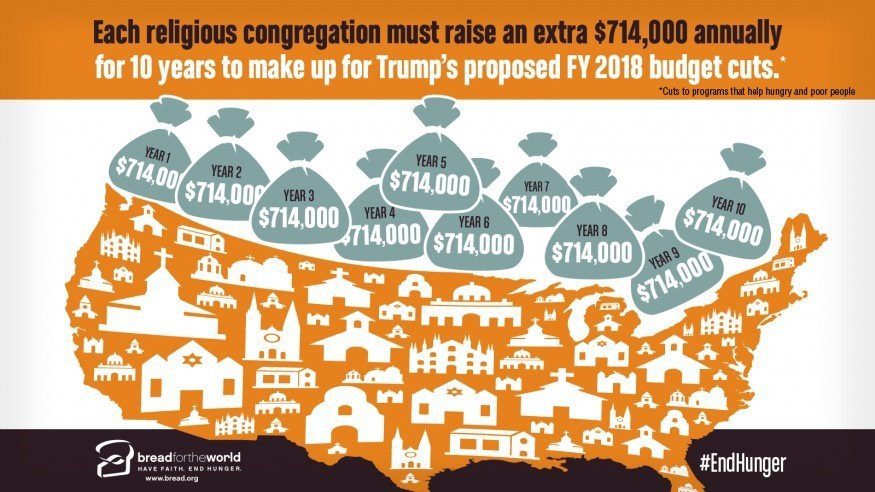Washington, D.C. – The country’s religious congregations will have to add $714,000 to their annual budgets each year for the next decade to make up for the drastic cuts found in President Trump’s federal fiscal year 2018 budget proposal, according to Bread for the World.
“There is no way our country’s 350,000 religious congregations can make up for the cuts in the services that help hungry, poor, and other vulnerable people,” said Rev. David Beckmann, president of Bread for the World. “Congress should not justify budget cuts by saying that churches and charities can pick up the slack. They cannot.”
The Center on Budget and Policy Priorities estimates that the more than half — or $2.5 trillion over 10 years — of the Trump administration’s proposed fiscal year 2018 cuts will come from programs that help low- and moderate-income Americans.
“President Trump has proposed a budget that includes the largest cuts ever to programs assisting struggling American families,” Beckmann said. “The healthcare cuts and the fiscal year 2018 budget cuts – both of which are being negotiated in Congress — are a double whammy for America’s struggling families.”
Bread for the World estimates that the healthcare cuts alone under the American Health Care Act will take away $2,000 a year in healthcare services from every man, woman, and child in or near poverty for the next 10 years.



